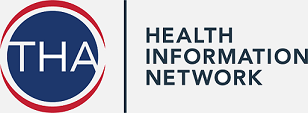NEW 2018 Hospital Discharge Data System (HDDS) User Manual – Now Available!
The Tennessee Department of Health (TDH), in collaboration with the Tennessee Hospital Association Health Information Network (THA HIN), has released the 2018 Hospital Discharge Data System (HDDS) User Manual. You can access the manual by visiting THA-HIN.com or by clicking here. If you are a registered user for THA RDDS, you may also access the manual upon logging into the RDDS website.
You will find a historical summary of changes to this manual beginning on page 7. The changes to the current manual include:
- Conversion to ICD-10 effective October 1, 2015
- Dual coding discontinued for ICD-10 for outpatient claims effective October 1, 2015
- New payer codes effective January 1, 2016
- No longer accepting provider UPIN identifiers effective with the submission of Q1-18 discharge data
- Updated language overall to reflect the Official UB-04 Data Specification Manual published by the National Uniform Billing Committee (NUBC)
